
TUESDAY, MAY 7, 2024
Join the Pacific Southwest Mental Health Technology Transfer Center (PS MHTTC) for a special, no-cost, full-day symposium to uplift the origins, approaches, and practices of harm reduction in mental health work. Our region is proud to be a national incubator of this approach: the National Harm Reduction Coalition started in Oakland, CA over 25 years ago. Throughout our region, providers and systems leaders are partnering with people with lived experience to reimagine how we take care of each other (sometimes through systems, sometimes despite systems, and sometimes within systems).
While harm reduction has roots in substance abuse, it is also a vital mental health approach. We are holding this symposium to explore how the tenets of harm reduction and healing justice can inform and transform the way we engage in mental health care.
We come together to explore these questions:
By centering the lived and living experience of people and communities, how might community-driven public health strategies help us care for our clients and patients differently?
How might we as service providers listen and learn from communities who are already taking care of each other, saving each other’s lives in ways that might be uncomfortable but necessary?
Our symposium captures innovative approaches to harm reduction with presenters from across the region who work within diverse settings and populations. We also honor voices of lived experience by creating rich learning opportunities throughout the day that explore how our mental health policies, programs, and practices can minimize stigma and discrimination and maximize respect, health, and self-direction.
Our symposium runs from 9:00 a.m. - 4:00 p.m. PT on May 7, 2024 (International Harm Reduction Day).
6:00 a.m. - 1:00 p.m. HT / 9:00 a.m. - 4:00 p.m. PT / 10:00 a.m. - 5:00 p.m. MT / 11:00 a.m. - 6:00 p.m. CT / 12:00 - 7:00 p.m. ET / 5:00 - 11:00 a.m. American Samoa / 4:00 - 10:00 a.m. Marshall Islands / 3:00 - 9:00 a.m. Pohnpei, Kosrae / 2:00 - 8:00 a.m. Guam, Northern Mariana Islands, Chuuk, Yap / 1:00 a.m. - 8:00 a.m. Palau
[Find your local time zone here]
We apologize to our Pacific Island audience for the timing of this event; we make every effort to make our content accessible across time zones when possible. The event recording will be available on our webpage within two weeks of the symposium to allow for asynchronous learning.
Agenda subject to change.
Our day begins with a grounding keynote, a workshop, and two panels – one spotlighting regional harm reduction practices and the other centering the voices of lived experience. A closing presentation will bring these strands together and offer a call to action.
Participants will pursue a variety of learning objectives, including the following:
Notes:
This Symposium is for public and mental health practitioners, social workers, psychologists, therapists, school mental health personnel, school counselors, educators, school administrators, youth and young adult professionals, and anyone interested in enhancing their knowledge, skills,and practice with harm reduction.
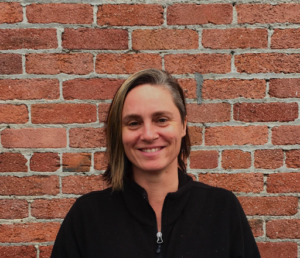
Jen Leland is a white, queer, licensed marriage and family therapist who spent her adolescence in psychiatric, substance abuse, and group residential care programs using abstinence and high control, coercive approaches. These experiences of harm spurred her 25 year commitment to working in public systems and youth programs, organizing around harm reduction and healing justice principles to create more stories of healing and fewer stories of institutional trauma and harm. She currently works at the RYSE Center in Richmond, CA as Clinical Director, working with young people to build the health justice spaces and practices they deserve.
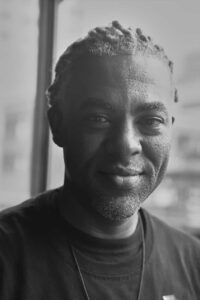
Maurice Byrd is a licensed Marriage and Family Therapist working as a harm reductionist for the past 20 years. He is a clinical supervisor, and has collaborated in the development and implementation of community mental health programs for people experiencing chronic mental health disorders, substance use disorders, and experiencing homelessness. During his career, he has worked with adolescents and adults. He has provided mental health services in middle schools, high schools, in private practice settings, in the San Francisco County Jail system, in San Quentin prison, in homeless drop-in centers, at needle exchanges, and on the sidewalk with people experiencing homelessness.
He trains, teaches, supervises, and provides consultation to both clinical and non-clinical staff at several non-profit agencies nationally, primarily in the San Francisco Bay Area and is often invited to speak as a voice for harm reduction therapy. Maurice specializes in teaching the fundamentals of practicing Harm Reduction Psychotherapy. He also enjoys teaching about facilitating groups and led a Harm Reduction Marijuana Group for system exposed young adults that he facilitated for 8 years.
Maurice has been trained in MDMA for PTSD with MAPS and Ketamine assisted therapy. He also provides individual and group KAT therapy in his private practice. He has taught in the MFT program at Holy Names University in Oakland, CA focusing on Substance Use interventions and Community Mental Health. He is a published author, cowriting the chapter Dealing with Drug Use After Prison: Harm Reduction Therapy in the book Decarcerating America.
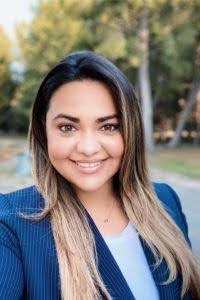
Priscilla is a Licensed Clinical Social Worker who has dedicated the past 19 years of her life to the helping profession by supporting youth, young adults, and families across a variety of settings. Priscilla earned her Bachelor of Science degree in Human Services from California State University, Fullerton and her Masters in Social Work from the University of Southern California.
Priscilla’s work has included leading and managing mental health teams across the Orange County Department of Education in alternative education settings, including correctional facilities. She has trained law enforcement personnel, educators, interns, church staff, performing artists facilitating arts programs and community members on topics ranging from trauma informed care, mental health treatment, crisis intervention, suicide assessment and safety, school based mental health, substance abuse treatment, and managing the impact of vicarious trauma and secondary traumatic stress.
 Dylan Thomas (he/him)
Dylan Thomas (he/him)Dylan is a 27 year old professional and advocate for mental health. He’s spent 6 years speaking about his lived experience as well as his experience through the systems of care, from adolescence to adulthood. During this time Dylan has facilitated various groups, attended trainings, and made valuable connections. He now works full time while finding ways to make a positive impact.
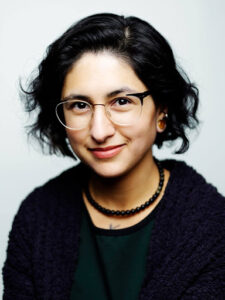
Gabriela is the Associate Director of the National Center on Domestic Violence, Trauma, and Mental Health, as well as faculty at the University of Chicago, where they direct the Advanced Alcohol and Other Drug Counselor Training Program within University of Chicago's Crown Family School of Social Work, Policy, and Practice. Gabriela brings over 15 years of experience supporting people impacted by structural and interpersonal violence through innovative and evidence-based clinical, housing, resource advocacy, peer-led, harm reduction, and HIV-integrated care programs. As a person with lived experience of violence and trauma, they center survivor-driven solutions, nonpathologizing approaches, and intergenerational healing. Currently, Gabriela authors best practices, leads national capacity-building efforts, and provides trauma-informed policy consultation to advance health equity and social justice.
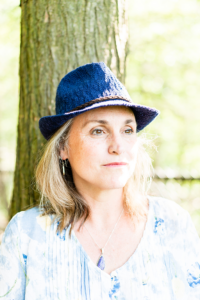
Janis Whitlock is a developmental psychologist, researcher and consultant. She is emerita research faculty at Cornell University and the founder and director of the Cornell Research Program on Self-Injury and Recovery. She retired in 2022 so she could dedicate her time to actively supporting youth serving organizations in direct and effective application of knowledge. Her four-decade career includes direct service, program development and evaluation in the area of women's and youth sexual health, followed by 25 years of direct research in areas related to youth mental health and wellbeing. She focuses on using strength-based approaches, including resilience and connectedness to understand and support social and emotional health and has conducted research in the areas of connectedness and belonging, non-suicidal self-injury, suicide prevention, and the relationship between technology use and youth wellbeing. She is the author of over 70 papers and co-author of the book, Healing self-injury: A compassionate guide for parents and other loved ones and co-editor of the upcoming volume, Oxford handbook on non-suicidal self-injury. She is also the founder and director of the Self-Injury and Recovery Resources website which houses resources for individuals with self-injury experience, youth serving professionals, and caregivers, among others. Dr. Whitlock is dedicated to helping youth, families and larger communities thrive.
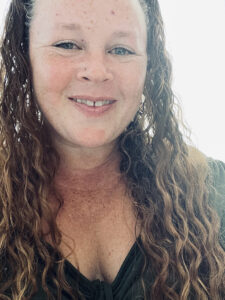
Erin Hughes is a school based social worker who has spent her career working with adolescents in San Francisco. For the past 17 years, she has been the Wellness Coordinator at June Jordan School for Equity, a small social justice high school in the Excelsior neighborhood. Her work primarily focuses on supporting the well-being of students and families through mental health services, case management, crisis prevention and intervention, and health education. Erin uses a trauma informed, strength based approach in her work with students that centers harm reduction and empowerment. She believes that harm reduction is a powerful approach to use with adolescents because it is rooted in justice and human rights, meets clients where they are at, honors their voice and choice, and aligns with their developmental needs.
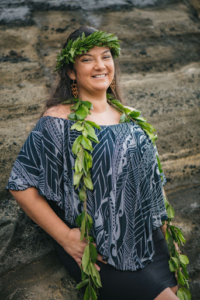
Lilinoe Kauahikaua is from Piʻihonua, Hilo on Moku o Keawe (Hawaiʻi Island) but has lived and grown in many other spaces throughout her journey, including Oʻahu, California, and Arizona.
Lilinoe serves as program coordinator with Papa Ola Lōkahi, for all substance use and mental health projects, as well as the AANHPI ʻOhana Center of Excellence for behavioral health project manager. Her work focuses on cultural approaches in healing. Lilinoe was appointed by Governor Ige to the Hawai’i Advisory Commission on Drug Abuse and Controlled Substances and serves on the boards of ʻEkolu Mea Nui, Going Home Hawai’i, Kinohi Mana Nui, and the cultural committee co-chair for The Going Home Hawaiʻi Consortium, organizations serving the Native Hawaiian community impacted by incarceration and substance use. Lilinoe also serves on committees for the Institute of Violence and Trauma (IVAT), and Hawaiʻi SUPD (Substance Use Professional Development) initiative.
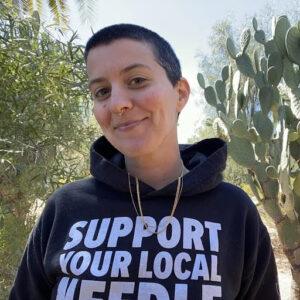
Stacey Cope is a queer parent, a plant nerd, a dancer, a sensory and pleasure seeking troll. Stacey is one of the original members of Sonoran Prevention Works, in Tempe, Arizona and is so excited to explore their new role. They see harm reduction as the foundation for all liberatory paths forward; an orientation toward love and building a future we want our children to live in. They center harm reduction in their internal, interpersonal, communal and professional relationships. Harm reduction has saved Stacey’s life, more times than they can count. Stacey sees harm reduction as an invitation to more feeling, more dignity, and more choice. You can catch them resting, exploring libraries, talking to plants and birds and leaning into play with their magical kid.